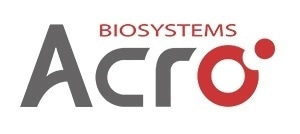It has been over six months since the World Health Organisation (WHO) declared a public health emergency of international concern (PHEIC) in response to the emergence of SARS-CoV-2, also known as COVID-19. PHEIC is the most serious indicator of risk to the health of the international community.
It has been difficult to compile comprehensive data due to a lack of standardized testing and reporting, but the WHO has estimated that there have been more than 24.3 million confirmed cases worldwide, attributing more than 800,000 deaths to the SARS-CoV-2 virus.
SARS-CoV-2: The struggle for rapid diagnostics
Regional and international efforts have so far been focused on containing the virus in order to restrict its spread - referred to by the media using the short-hand term ‘flattening the curve’. However, this is fundamentally a holding method.
Researchers are working to develop suitable prophylactic interventions using structural proteins, and this approach is at the forefront of the ongoing fight against SARS-CoV-2. This tactic was also employed when aiming to develop strategies to deal with other respiratory diseases such as SARS-CoV and MERS.
Through diligent research and development (R&D), a team from ACROBiosystems has successfully engineered a series of SARS-CoV-2 antigen proteins for COVID-19 diagnostics. Numerous recognized testing methodologies, (for example, reverse transcription-polymerase chain reactions (RT-PCR)) use an RNA template to detect SARS-CoV-2 genes, but this results in them being relatively inconvenient and slow.
In contrast, however, antibody and antigen detection of COVID-19 infection are much faster, facilitating faster diagnostics. Some kits even approaching instant detection.
SARS-CoV-2 antigen proteins
The team at team ACROBiosystems has been working hard ever since SARS-CoV-2’s genomic sequence was first published, creating a suite of high-quality recombinant proteins, nucleocapsid protein antigens and spike glycoprotein.
These SARS-CoV-2 antigen proteins are each derived from either E. coli or HEK293 cell lines. They are recommended for a wide range of antibody detection methods including enzyme-linked immunosorbent assay (ELISA), chemiluminescent immunoassay and gold immunochromatography.
Serological systems such as these are designed to improve the speed of SARS-CoV-2 screening techniques, offering fully validated bioactivity with excellent consistency between batches.
Thanks to ongoing work, ACROBiosystems is now able to offer free samples to researchers working on the development of advanced diagnostic kits for COVID-19.
About ACROBiosystems
ACROBiosystems is a cornerstone enterprise of the pharmaceutical and biotechnology industries. Their mission is to help overcome challenges with innovative tools and solutions from discovery to the clinic. They supply life science tools designed to be used in discovery research and scalable to the clinical phase and beyond. By consistently adapting to new regulatory challenges and guidelines, ACROBiosystems delivers solutions, whether it comes through recombinant proteins, antibodies, assay kits, GMP-grade reagents, or custom services. ACROBiosystems empower scientists and engineers dedicated towards innovation to simplify and accelerate the development of new, better, and more affordable medicine.
Sponsored Content Policy: News-Medical.net publishes articles and related content that may be derived from sources where we have existing commercial relationships, provided such content adds value to the core editorial ethos of News-Medical.Net which is to educate and inform site visitors interested in medical research, science, medical devices and treatments.